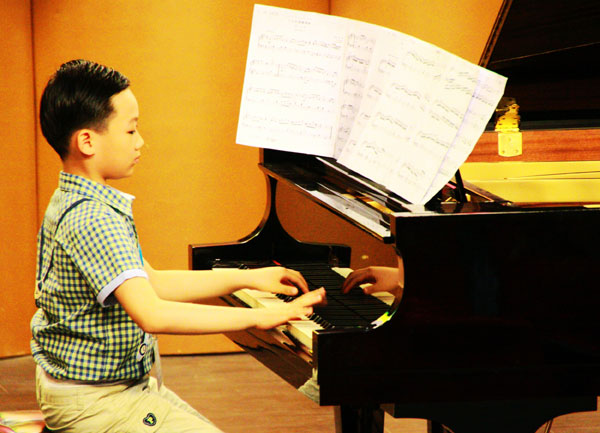 |
|
A boy competes in the piano category at the First Yibaihui International Mozart Music Master Class Competition. He is among more than 2,000 children and young adults from five cities around China to participate in the contest. [Photo/China Daily] |
Is China the future of Western classical music? In the eyes of Jiang Tao, a veteran figure in the development of China's pop music industry for nearly two decades, the answer is yes.
As the general manager of Chia Tai Music Group, one of the earliest music-production companies, which was founded in 1992 in Beijing, Jiang has switched his attention from the pop-dominated market to cultivating Chinese classical musicians during the past 10 years.
After more than a year of preparation, Jiang co-organized the First Yibaihui International Mozart Music Master Class Competition in Beijing recently. More than 2,000 children and young adults from five cities around China, including Beijing, Shanghai and Shenyang, competed in three categories: piano, violin and singing.
"Many Chinese music companies started with branding pop stars in the early 1990s. However, the needs of the consumers have changed and diversified over the past few years, and we have to pave new ways to win in the market," says Jiang.
In 1990, Jiang formed a rock band, called Bronze, along with Chinese songwriter Gao Xiaosong and folk singer Lao Lang. In 1993, he joined in Chia Tai Music Group and worked with music companies, such as A8, an online music store, during the 2000s when the Internet was booming in the country.
Last year, Jiang returned to Chia Tai Music Group and he embraced the classical-music market as one of the main goals for the company's future development. He believes that China's growing influence in the world is mirrored by its flourishing classical-music scene.
In 2014, Jiang's company worked with the China National Symphony Orchestra by launching a national tour of an original Chinese opera, Mulan Psalm, which was composed in 2004 by Guan Xiao, the president of the orchestra.